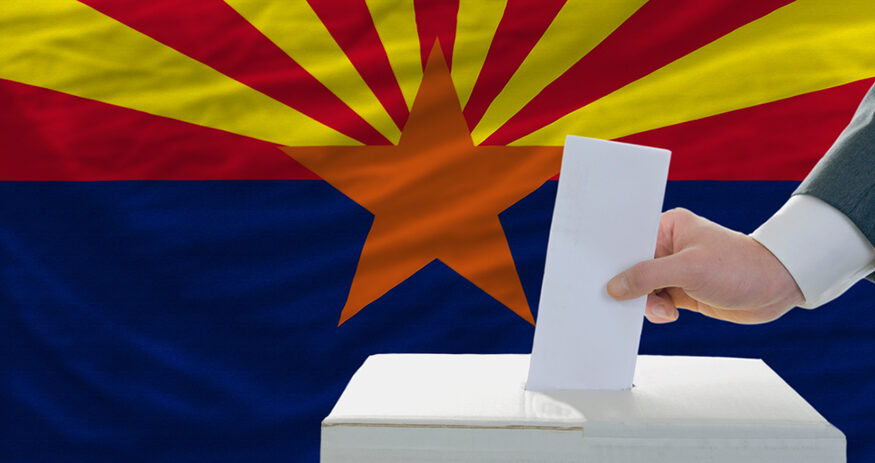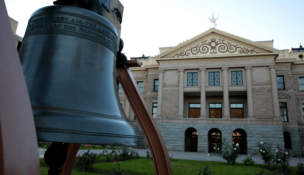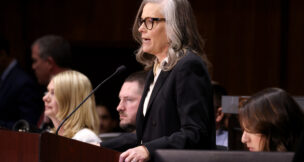Measure on ballot might not count
Howard Fischer, Capitol Media Services//September 3, 2024//
So when it comes to challenging signatures on initiative petitions, how late is too late?
Definitely once the ballots go to the printer, contend supporters of Proposition 140. That’s the measure to scrap partisan primaries.
But members of the Arizona Supreme Court aren’t sure. In fact, they have issued an order allowing a legal challenge to continue, giving foes a chance to make their case that the number of valid signatures falls short.
And if challengers prove that, the justices said the votes for the measure – which will be on the already printed ballots – just won’t count.
Now the initiative backers have filed legal arguments telling the justices they are wrong. And they want the Supreme Court to say that, the printing deadline having passed, they should clear the way for voters to have their say.
Allowing the order to stand – and the challenge to continue, “cuts a new and risky path,” argued attorney Andrew Pappas for Make Elections Fair which wants a public vote on the measure.
“The order invites and indeed contemplates the risk that Arizona voters will vote for the initiative and later have their votes thrown out,” he told the justices. And that, said Pappas, would disenfranchise the voters.
Foes, however, have argued there is no reason to allow a vote, and, more to the point, allow the votes to be counted if there never were enough signatures to put the issue on the ballot in the first place.
At issue is whether voters want to create a new system for choosing candidates for federal, state and local office.
Right now, candidates for partisan elections face off in a primary. Then each party’s top vote-getters appear on the November ballot.
Prop 140 would replace that with a single “jungle primary” where all candidates from all parties compete against each other. And all voters, regardless of party affiliation, can cast a ballot.
It would then allow the top two vote-getters to face off in the general election, regardless of party designation. But it also would permit the Legislature to let up to five candidates advance to the general election, with a system of ranked-choice voting to ultimately decide who wins.
Make Elections Fair submitted about 575,000 signatures. That was winnowed down after checks by state and county election officials to 409,474, still more than the 383,923 needed to qualify for the ballot.
Foes, however, contend about 40,000 of those signatures are duplicates.
At an initial hearing, Maricopa County Superior Court Judge Frank Moskowitz, an appointee of former Gov. Jan Brewer, refused to consider some of the evidence that foes say back up their contention. The Supreme Court said that was wrong, sending the case back to him.
The only thing is, the judge said there was no way for him to review all the questioned signatures before the Aug. 22 deadline to print ballots. And he refused to take the word of the challengers that the signatures are duplicates without looking himself or appointing a special master to do that.
So he set a new hearing for Sept. 12, long after the ballots are printed.
The Supreme Court, in a brief order, said Moskowitz should determine if the number of valid signatures falls below the minimum.
More to the point, the justices said if that’s the case, he should issue an order “precluding any votes for the measure from being counted.”
“Under these condensed circumstances, this result is the most appropriate way to enable the parties to present their evidence for a proper adjudication in an expedited manner,” wrote Chief Justice Ann Scott Timmer.
But Pappas is now trying to convince the justices they are wrong. He contends that once the printing deadline passed, it’s game over and the votes for Prop 140 should be counted – regardless of what foes think they can prove about the number of valid signatures.
“By allowing this expedited election litigation to proceed beyond the start of the ballot-printing process, the order is at odds with eight decades of the court’s precedents, the court’s rules, and the court’s orders in two prior appeals in this dispute,” Pappas told the justice. And, he argued, it also runs afoul of the Arizona Constitution, state law and public policy.
The essence of his argument is that the burden is not on Make Elections Fair to prove the signatures are valid but instead on the challengers to show they are not. Pappas said that it is clear that by the time the printing deadline came around, they had failed to meet that burden.
And he said the fact that time had run out for the foes to make their case does not matter.
Pappas said there is precedent for that argument.
He cited a case going back to 1983 involving the Save Our Public Lands initiative.
That involved a question of whether there were sufficient signatures to put the measure on the ballot. The random sample count was so close that election officials were told to go back and review all the signatures.
But the justices concluded, there just wasn’t enough time to do that.
“If the time pressures are such that the county recorders cannot verify every signature before the date the election ballots must reach the printers, all doubts as to validity should be resolved in favor of sustaining the signatures, and the initiative should be placed on the ballot,” wrote Justice Frank Gordon.
And in a 1998 Supreme Court ruling, the justices said that a delay in challenging a measure to outlaw cockfighting meant that once the time had run out for litigation the presumption is the measure is entitled to go to the ballot where the voters get the last word.
The justices have given foes through the end of this week to file a formal response before they make a final decision.
The Supreme Court already has rejected one challenge seeking to keep it off the ballot amid arguments that it asked voters to approve multiple changes in the law in a single take-it-or-leave-it initiative. The justices said the provisions were sufficiently closely related to meet constitutional requirements.








































